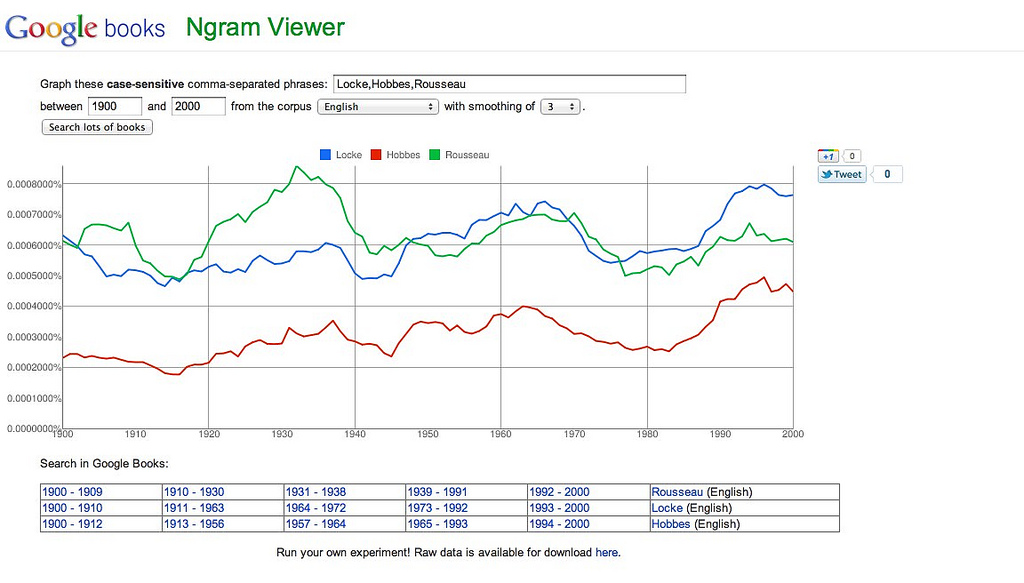Where Are the Philosophers? Thoughts from THATCamp Pedagogy
Peter Bradley
In October, I attended THATCamp Pedagogy, where I met loads of lovely humanists, each of whom is doing fascinating things with digital tools to study humanistic questions or asking humanistic questions about digital content.
There was one core humanistic discipline largely absent from this unconference: my own, philosophy. This is not new, nor surprising. It is, however, deeply regrettable.
A quick, though not exhaustive, search of the various THATCamp participants on *.thatcamp.org found only one participant, other than me, officially affiliated with philosophy–a director of information technology who used to be a philosophy professor. There are a handful of excellent information technologists with backgrounds in philosophy involved in the THATCamp / digital humanities movement, but I know of only one other actual philosophy professor: Chris Sula, of the Pratt Institute and phylo.info.
My point here is not that there are no philosophers developing digital content or using information technology to further philosophical research: David Bourget’s PhilPapers.org, John Immerwahr’s teachphilosophy101.org, and Andy Cullison’s sympoze.com are notable examples of excellent and innovative uses of informational technology to advance philosophy. At the same time, there are a number of notable philosophers thinking about the interface of technology and ourselves—David Chalmers, Luciano Floridi, and Andy Clark spring to mind.
There are not, however, numerous examples of philosophers using techniques of the digital humanities to do philosophy or using digital tools to teach philosophy.
On a very basic level, philosophy is interested in the discovery, development, classification, and analysis of human concepts and reasoning. We teach texts, concepts, arguments, and the historical and social development and influence of such texts, concepts, and arguments.
All of these tasks are amenable to the digital humanities. The concepts and reasoning structures common in digital environments are accessible for philosophic analysis, and the tools developed to analyze and archive literature and language can clearly be adapted to philosophic work.
Here I’ll suggest, in broad outlines, two areas in which I believe philosophy can, and should, contribute to the digital humanities. These suggestions are by no means exhaustive.
First, our concepts of the digital, and the concepts that are accentuated by digital technology, are open to philosophic analysis. Obvious examples include space, personal identity, textuality, social networks, experience, intellectual property, etc. But there is also a set of concepts and problems that appear because of the ubiquity of information systems that should be subject to philosophical analysis, including interesting new forms of informal reasoning and persuasion in multimedia socially-networked information systems such as retweeting and trolling.
Second, the tools of the digital humanities can be extended to philosophy, and especially the teaching of philosophy. Here is a simple example:
Relative influence of philosophers may be approximated by word-frequency analysis of their mentions and/or citations. For example, Google Ngrams can quickly produce a graph of the relative importance of Locke, Hobbes and Rousseau during the 20th century:
Ngrams are easy to generate and adaptable to classroom exercises. They can quickly illustrate grand historical trends in concept development. Terms that originate in philosophy–such as ‘utilitarianism’ or ‘emotivism’–are particularly accessible for undergraduates to investigate. In a recent writing class, I had students use Ngrams, along with Twitter, to research the instances of word use in order to test their proposed conceptual analyses.
With respect to argumentation, I often tell my students that reductio ad absurdum is, if not the most common argumentation form in philosophy, one of the most common. It would be very useful to have actual evidence to support that claim. With a bit of textual markup of historical work in philosophy, we could query and establish the relative frequencies of argumentative forms
And for current work in philosophy as a discipline, one can use the techniques of digital humanists to map trends in the discipline. The opposite approach is typified by a certain well-known blogger in philosophy who has been known to prognosticate on ‘trends’ in philosophy, both continental and analytic. None of his claims have ever been backed up with data. Now that many journals provide their abstracts via RSS feed, it’s easy enough to pull abstracts together and run word-frequency analysis on those abstracts. This technique will not, of course, provide a definitive answer, but it can provide a basic heuristic that could indicate a trend. I actually set up an automatic script to do just that some time ago. The resulting Wordles, along with all the data, are available here.
There is so much potential for philosophy generally, and teaching philosophy in particular, in the THATCamp and digital humanities movements. We need, as a discipline, to engage with other humanists and participate with new and interesting research tools.
Originally published by Peter Bradley on November 20, 2011. Revised March 2012.

